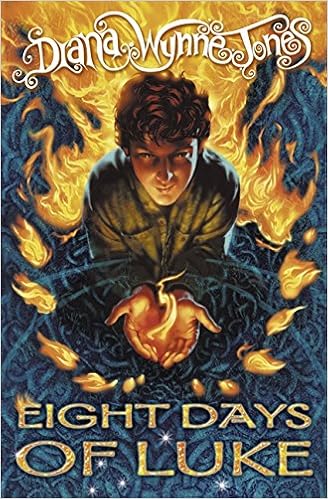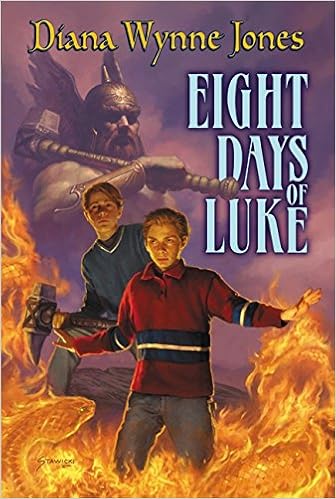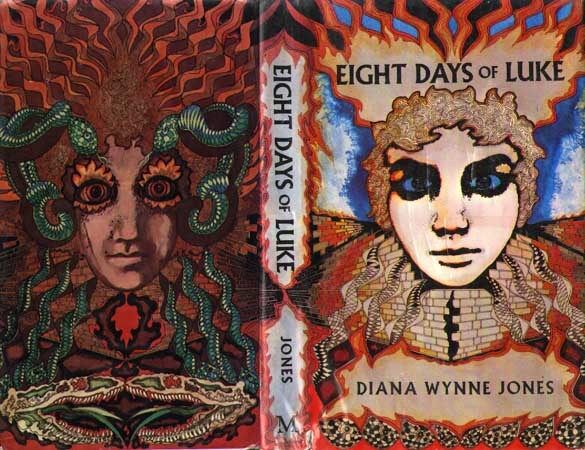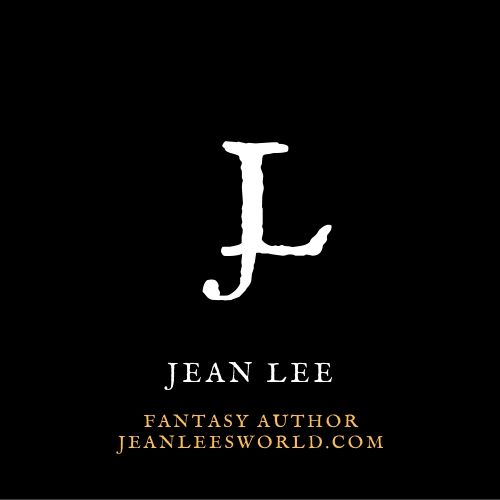For a long time, I loathed writing the “intimate family story.” They were all the rage in school, these small-cast, down-to-earth stories of relationship conflict without any hope of a happy ending. Where’s the fun in writing such a story? You can’t have any massive showdowns or laser battles. It’s not like you can blow up an aircraft carrier when everything’s set on in the middle of Fort Bored, Wisconsin.
Now I know such stories have their place and their readers. Nothing wrong with that. But as a reader and writer, I struggled to see the true weight of small conflict…until now.
“What’s Aunt Dot look like, Mom?”
“Why does David go away to school?”
“Why is David’s family so mean?”
Blondie, Biff, and Bash sat around our meal/school table, their peanut butter sandwiches untouched, string cheese still wrapped. Apple sauce dripped from their spoons onto their Oreos.
“Is David that guy?” Bash points to the boy on the cover.
I shook my head. “Nope. That’s Luke.”

I had thought long and hard regarding which Diana Wynne Jones book to read to the kids. Howl’s Moving Castle was my first choice, but it seemed…oh, it seemed too easy a choice. They had seen the movie which, while very much its own creature, would still give the kids lots of visuals to think on as we read. I wanted to start from scratch and require the kids to visualize the story for themselves. This isn’t a typical challenge put to seven-year-olds, who are still very into picture books and the like, but Blondie was quite used to lunchtime read-alouds without any illustrations, so . We’d had success…and see if Myth-Reader Blondie would catch on as to who’s who in this story of freed mischief and horrid family members. Good thing I didn’t have this particular cover, which gives away the whole bloody mystery…

I mean, come ON. To post the climax of the story on the flippin’ cover…
Anyway.
Eight Days of Luke is a perfect example of just how epic an intimate family conflict can be. Jones accomplishes this in two parts: first David’s family, and then Luke’s.
Unlike most boys, David dreaded the holidays. His parents were dead and he lived with his Great Aunt Dot, Great Uncle Bernard, their son Cousin Ronald and Cousin Ronald’s wife Astrid; and all these four people insisted that he should be grateful for the way they looked after him. (9)
One paragraph in, and readers know the family dynamic is not at all pleasant, let alone fair. Being an orphan is lousy in and of itself, but to live with relatives who expect nothing but gushing gratitude for nothing is its own level of Hel.
“David,” said Aunt Dot, “I thought I told you to change your clothes.”
David tried to explain that he had now no clothes that fitted him any better. Aunt Dot swept his explanation aside and scolded him soundly, both for growing so inconsiderately fast and for arriving in advance of his trunk. It did no good for David to point out that people of his age did grow, nor to suggest that it was the railway’s fault about the trunk. (19)
Expectations set for David are always impossible to reach. He is not allowed amusements of his own, like a bicycle or a friend. The latest strain brought about by his family’s misunderstanding of when school let out leads to David boiling over and saying what no one’s dared say.
Before she or anyone else could speak, David plunged on, again trying so hard to be polite that his voice came out like an announcer’s. “It’s like this, you see. I hate being with you and you don’t want me, so the best thing is just to leave me here. You don’t have to spend lots of money on Mr. Scrum to get rid of me. I’ll be quite all right here.” (30)

there’s also a lot of magical whimsy with the way
Luke ribbons his fire amidst the garden.
The relations are utterly flabbergasted at David’s bluntness–no one denies David’s words, but they are so angered by it all that they send David away without lunch. David sulks in the backyard and, overcome by a desire to say awful, cursing words, unwittingly cracks open the very ground to reveal snakes and fire and…another boy named Luke. The two fight back the snakes, and then David is summoned to face the judges, his family.
“We will say no more about your rudeness at lunch, but what we would like to hear from you in return is a proper expression of thanks to us for all we have done for you.”
Under such a speech as this, most people’s gratitude would wither rather. David’s did. “I said Thanks,” he protested. “But I’ll say it again if you like.”
“What you say is beside the point, child,” Aunt Dot told him austerely. “All we want is that you should feel in your heart, honestly and sincerely, what it means to be grateful for once.”
“Then what do you want me to do?” David asked rather desperately.
“I sometimes think,” said Uncle Bernard vigorously, “that you were born without a scrap of gratitude or common good feeling, boy.” (47)
It doesn’t matter that David really is thankful not to be sent off to a remedial math tutor for two months. It doesn’t matter what his manners are, or what he does to stay clean (which, for a boy, is nigh impossible anyway). David’s very presence in the family breeds contempt, not love, and in that contempt there will always be conflict.
It takes some time with the mysterious Luke to bring about some much-needed change to David’s family’s dynamic. Cousin Ronald’s wife Astrid, for instance, ends her days of simpering and snapping and starts standing up for David’s needs.
“Honestly, David, sometimes when they all start I don’t know whether to scream or just walk out into the sunset.”
It had never occurred to David before that Astrid found his relations as unbearable as he did.
…
[said Astrid.] “Bottom of the pecking-order, that’s you. I’m the next one up. We ought to get together and stop it really, but I bet you think I’m as bad as the rest. You see, I get so mad I have to get at someone.” (127)
David’s family also doesn’t know how to handle the new attention from individuals keen to find Luke: the gigantic gardener Mr. Chew, the inquisitive ravens, the impeccably dressed Mr. Wedding, and more. David can’t fathom what these people would want with Luke, and Luke doesn’t know either, at least at first. It takes a run-in with a ginger-haired man who looks a lot like Luke to move the mystery forward into another scene of accusation before familial judges.

“One of my relations,” said Luke. “He’s lost something and he thought I knew where it was.” To David, he added, “And I see why Wedding’s so set on finding me now. It’s rather a mess.” (131)
****
Most of the other people were shouting accusations at Luke at the same time. David did not notice much about them except that they were tall and angry and that one man had only one ear. Nor did he notice particularly where they were, though he had a feeling that they were no longer in Uncle Bernard’s dining room but somewhere high up and out of doors. (144)
Now unless you were reading that blankety-blank version of a cover with Thor and the two boys on it, you may only now begin to see that Mr. Wedding, Mr. Chew, Luke, and the others are far more than arguing family members. David is witnessing a clash among gods and goddesses, a conflict spanning across all centuries and further, to hillsides of fire, to prisons of snakes, to storm-bringing hammers.
And yet for all that power, that end-of-days, time-bending power, they are still a family of bickering relations refusing to believe a boy’s words.
Sound familiar? It does to David.
The chief thing he noticed was how small and frightened Luke’s harassed figure looked among them. Never had David felt for anyone more. It was just like himself among his own relations. (144)
This parallel stays with us as we watch David offer to clear Luke’s name and set out to uncover the missing object Luke’s been accused of hiding. It takes a visit to Three Sisters living in a cupboard in a city boy’s basement and running a gauntlet of young warriors, but David soon discovers the secret ward hidden in the fires beyond time, and retrieves that which all thought Luke had stolen: Thor’s hammer.
Luke’s name cleared at last, his immortal family rejoices while David learns the fate of his own family.
When the thunder had abated a little, Astrid said, “You’ll never guess what’s happened, David. Dot and Bernard and Ronald have run for it.”
“Run for what?” said David.
“Run away, silly,” said Astrid. “The police think they’re out of the country by now. That’s how much they were worried about you being missing. Or me either, for that matter.” (199)

Blondie was shocked David’s family took off. “But he’s a kid!” she said. “They can’t leave him!”
I showed her the page of text. “Welp, they did.” Astrid explains that David was the real owner of the money that his relatives had been spending all these years, and once word (from Mr. Wedding of all people) got to a neighborhood solicitor about David’s situation, the authorities put a warrant out for David’s relatives.
Blondie nodded in approval with this. “Astrid’s way nicer now, so that’s okay.” David feels the same way, too, and says as much. Because his presence in the family was such a source of conflict, the absence of family here takes all the conflict with it. For David, life can only get better.
Could the same be said for Luke? David learns the answer when he asks about those who had taken Thor’s hammer.
David was still puzzled. “Did he–Sigurd–like the lady more, then? He didn’t seem to–just now, at Wallsey, I mean.”
“No. He was mistaken,” said Mr. Wedding.
“Was that mistake your doing, by any chance?” Luke asked shrewdly. “Brunhilda seemed to think it was when she came to see me in prison.” Mr. Wedding thoughtfully stroked the raven and said nothing. “I thought as much,” said Luke. “Their children might have threatened your power, eh? But she found another way of cutting your powers down when she took the hammer into those flames with her. Am I right?”
Mr. Wedding sighed. “More or less. These things have to be, Luke. We’ve been in a poor way, these last thousand years, without the hammer. Other beliefs have conquered us very easily. But now, thanks to David, we’ll have our full strength for the final battle.” He turned and looked at Luke, smiling slightly. Luke looked back and did not smile at all.
It came home to David that Luke and Mr. Wedding were going to be on opposite sides, when that final battle came. (201-2)
Unlike David’s relations, Luke’s family has no intention of running. Oh no–that conflict is far from over. He may not have to go back to prison for a crime he didn’t commit, but there is no promise of better things in his future. For Luke, there would always be conflict with his family. But these family squabbles would do more than hurt feelings or send a radio into the compost. Family squabbles on Luke’s level could drown islands, crack open time, and burn countless cities to dust. Any small, intimate conflict within a family of gods is destined to impact the world entire.
Be they mortal or immortal, some families are born to fight.
~STAY TUNED!~
I have a few kickin’ interviews lined up, and I’m excited to share more lessons in plotting. I also want to share some of my own writing ups and downs. It’ll be a wee bit, though, as I want to spend time in June exploring YOUR work and all that you’ve been up this spring. Hooray! I’m so excited to hang out with you!
Read on, share on, and write on, my friends!


Just seeing a Puffin Book makes me come over all nostalgic for my childhood.
LikeLiked by 3 people
I know just what you mean–I love hunting for those covers in used book stores. 🙂
LikeLiked by 1 person
Tantalising, Jean. I must admit, I do like my share of intimate family stories, and I often enjoy the quiet, contemplative kinds you describe.
Clearly, this Diana Wynne Jones version is a long way from quiet, but it certainly sounds like a good way to explore the dynamics. Nice review. I’m tempted.
LikeLiked by 2 people
Oh yes, the intimate family stories can be fitting…one of the most transformative reading experiences came from reading LOVE MEDICINE by Louise Erdrich. That’s very much a family drama without exploding aircraft carriers, vampires, or cosmic battles. Hmmm. That book might be due for a reread…
LikeLiked by 1 person
And thanks for the compliment. I was excited to study this one again 🙂
LikeLiked by 1 person
Thanks for introducing me to Diana Wynne
LikeLiked by 1 person
She’s so cool! 🙂 Hope you’re well. We’re far from the riots, but we’ve many loved ones in the thick of it.
LikeLiked by 1 person
It’s all so heartbreaking and frightening at the same time.
LikeLiked by 1 person
It really is. All we can do is hope and pray. x
LikeLiked by 1 person
I’m with Chris on seeing that puffin symbol. Thankfully looking across at the bookcase , I can still see a number of puffin books. The first one I’ve grabbed is Matilda. So here goes for a little nostalgia reading. Look after yourself my friend. xx
LikeLiked by 1 person
Oh, Matilda is a delightful read! Blondie will pull out her Dahl books every now and again. Ooo, speaking of which, I should get out my favorite–WITCHES…
LikeLike
I’m so glad you focused on family dynamics in this discussion, Jean, David’s family as well as Luke’s. DWJ writes a lot about neglectful or cruel parental figures, no doubt having been on the receiving end of her own parents’ — shall we say — casual attitude to Diana’s and her sisters’ upbringing. I do like it too that she introduces ambiguity: Astrid, for example, with her Nordic name, has a sort of redemption after appearing as bad as the rest of David’s relatives.
LikeLiked by 1 person
Yes! This is something the kids noticed, too, how Astrid realized how mean she’d been and was trying to make things right. That’s another important lesson any kid can learn: bullies don’t always stay bullies, and they deserve another chance. It was so fun to read, and I’m hoping we can keep up our lunch read-alouds this summer…perhaps continuing with WILD ROBERT… 🙂
LikeLiked by 1 person
Now that’s a title I’ve neither got nor read, not even sure if it’s published separately in the UK.
LikeLiked by 1 person
You may have missed it–it’s a little thing, a chapter book more fitting for the under 10s. But when a ghost turns people into sheep…well, let’s just say the little Bs are eager to start that one. 🙂
LikeLiked by 1 person
Ooo… I haven’t come across The Eight Days of Luke! I’ll have to track it down. And that is one of the reasons by the Rick Reardon books are so popular – they might be alll about Greek or Norse gods, but they, too, are about family…
LikeLiked by 1 person
Yes, exactly so!
LikeLiked by 1 person
Pingback: The Happy Benefits of #Rereading Old Favorites. #WritingLife #WritingTips | Jean Lee's World